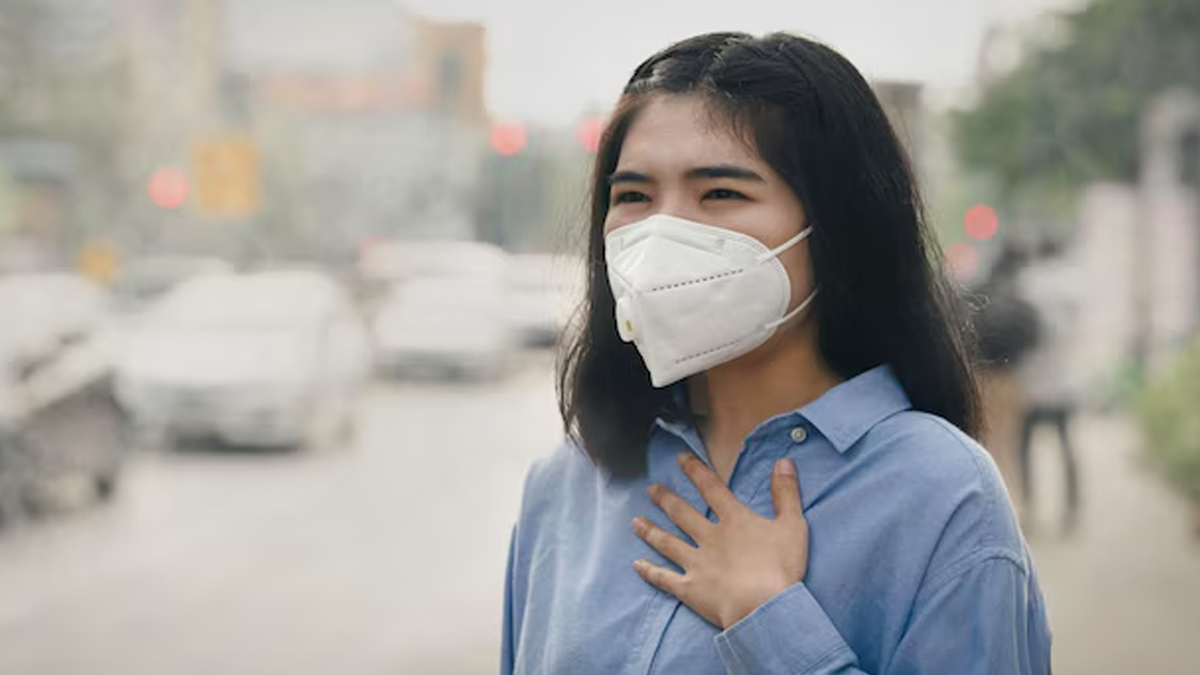
In the age of social media, health and wellness advice is often just a swipe away. Instagram is flooded with fitness influencers sharing their routines, but not all of this information is backed by science. One frequently asked question is: "Is it better to walk in the morning or evening when pollution levels are a concern?"
Table of Content:-
We spoke to our expert, Dr Shrey Kumar Srivastava, Senior Consultant and Physician, Sharda Hospital - Delhi to dive into the facts and clarify the best time to step out for your daily walk, particularly during Diwali celebrations when the air quality is bad. Here is what he shared with us.
Understanding Air Quality and Pollution
Around Diwali, air quality varies throughout the day. Additionally, ahead of the winter season, smog and pollution is also influenced by traffic patterns, weather, and industrial activities. Particulate matter (PM), nitrogen dioxide (NO2), and other pollutants in the air can pose serious health risks, especially for vulnerable populations such as children, the elderly, and those with pre-existing health conditions. So, when should you talk about that walk? Let's find out!
-1730716416653.jpg)
Studies indicate that physical activity can mitigate some negative effects of pollution. For instance, a 2021 study published in the Journal of National Institutes of Health found that exercising in less polluted environments can improve cardiovascular health outcomes significantly. Another study published in Science Direct highlighted that exercising indoors on days with poor air quality was a safer option for maintaining health. “Hence, it is better to walk either early in the morning or late evenings,” Dr Srivastava suggested.
Also Read: We Asked Doctors Whether Air Purifiers Really Work Against Pollution: Here’s What They Answered
Tips for Walking Wisely in Polluted Areas
However, if you cannot spare time during those times, make sure to keep a check on the following suggestions by our expert.
1. Check Air Quality Index (AQI)
Dr Srivastava suggests utilising apps or websites to monitor local air quality. "Aim to walk when the AQI is categorised as 'Good' or 'Moderate'," he said.

2. Choose Your Route Wisely
Select routes that are away from heavy traffic or industrial areas. "Parks and trails can provide a breath of fresh air thereby making your walk worthwhile," he added.
3. Timing is Key
If morning pollution is a concern in your locality, consider scheduling walks later in the day when traffic begins to decline. "You may opt to walk after the office or post dinner for that matter of fact," he recommended.
4. Be Mindful of Weather
Windy days can help disperse pollutants, making them potentially better for outdoor workouts. "Next time remember to not postpone your walk on a windy day," suggested Dr Srivastava.
While Instagram may tempt you with idyllic walking scenes, the reality is that the best time to walk in polluted areas largely depends on your local environment and the specific pollution patterns in your area. “Both morning and evening walks can have their merits, but understanding the air quality dynamics can help you make informed choices for your health,” Dr Srivastava concluded.
Conclusion
So, the next time you lace up your walking shoes, consider not just the time of day, but the air you’re walking in. Prioritise your health by stepping out when the conditions are right, and you’ll be well on your way to enjoying the many benefits of walking, all while keeping pollution at bay.
Also watch this video
How we keep this article up to date:
We work with experts and keep a close eye on the latest in health and wellness. Whenever there is a new research or helpful information, we update our articles with accurate and useful advice.
Current Version